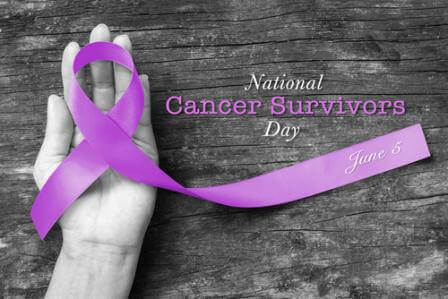3 Nutrition Tips for Cancer Survivors
Nutrition Diva gives three nutritional steps you can take to keep cancer from coming back.
Monica Reinagel, MS, LD/N, CNS
Listen
3 Nutrition Tips for Cancer Survivors

Lifestyle choices have a big impact on cancer risk—and that’s just as true for survivors as it is for those who have never had cancer. Lifestyle isn’t the only factor, of course. But it’s the one that we have the most control over. And exercising that control is an excellent way to diffuse our anxiety over the things we don’t have much say over.
See also: Can the right diet prevent cancer?
The good news is that the things you can do to reduce your risk of a cancer recurrence will also reduce your risk of cardiovascular disease, diabetes, and a host of other common conditions. The other good news is that the things that reduce your risk are pretty simple. You don’t need need to become a raw foods vegan or take all kinds of supplements or start drinking weird juices or teas.
In fact, according to the American Institute for Cancer Research, reducing your risk of recurrence boils down to three pretty basic things.
1. Eat Well
Your diet doesn’t have to be perfect, just decent. You know the drill by now: Eat plenty of colorful vegetables and fruit, legumes, and fish. Get your fat from healthy sources like nuts, avocados, and olive oil. Limit your intake of red and processed meat, refined grains, sweets, and alcohol. That’s it. Everything else—all those cancer-fighting super foods and complicated dietary protocols—are just window-dressing.
See also: Ask the Diva: Can a Macrobiotic Diet Help Treat Cancer?
In one study of colon cancer survivors, those who followed the “prudent” dietary pattern I just outlined were three times more likely to be cancer free after five years than those who ate the standard (and sorry) “Western” diet.
The features of the prudent dietary pattern, by the way, are precisely the same healthy habits we track with the Nutrition GPA app you’ve heard me talk about before. So if you want to get a sense of how well you’re doing, look for the Nutrition GPA in iTunes and the Google Play store.
2. Stay Physically Active
There’s also strong evidence that regular physical activity can significantly improve survival and quality of life in cancer patients (and everyone else). This can be as simple as taking a brisk 30-minute walk every day but if you’re willing and able to do more, you’ll get even more benefit.
3. Maintain a Healthy Body Weight
Cancer patients sometimes lose weight during their cancer treatment, either due to the side effects of the treatment or just the stress of being diagnosed and going through treatment. If you’re underweight, it’s important to get back to a healthy weight as soon as you can. Here are some tips for Healthy Weight Gain.
But it’s even more important for cancer survivors to avoid being overweight. Being overweight not only increases your risk of getting cancer in the first place, it also increases the risk of recurrence.
Being overweight not only increases your risk of getting cancer in the first place, it also increases the risk of recurrence.
Weight gain, either during or after treatment is actually fairly common, especially among breast cancer patients. This may be due in part to early menopause brought on by treatment or by hormonal therapy that they may be using to keep the cancer at bay.
If you’re overweight, it’s important to start working your way toward a healthier weight. It doesn’t need to happen overnight. In fact, slow weight loss is probably preferable, for reasons I discussed in my recent article on the Biggest Loser syndrome. Then, it’s important not to gain (or regain) weight as the years go by.
See also: How to Lose Weight Without Dieting
3 Ways to Live Longer
Together, these three lifestyle habits—eating well, staying active, and maintaining a healthy body weight—can significantly reduce the risk of recurrence and help you live a longer and healthier life. And yet fewer than 1 in 5 cancer survivors follow this basic prescription.
I realize that just because the guidelines are simple doesn’t mean that they are easy. So, now I’d like to hear from you. If you’re a cancer survivor, what challenges make it difficult for you to eat healthy, stay active, and maintain a healthy body weight? Let’s do some problem-solving together. You can post your comments below or on the Nutrition Diva Facebook page.
And in honor of National Cancer Survivors Day, let’s all take a moment to celebrate the cancer survivors in our lives and let them know how glad we are that they are beating this disease.

